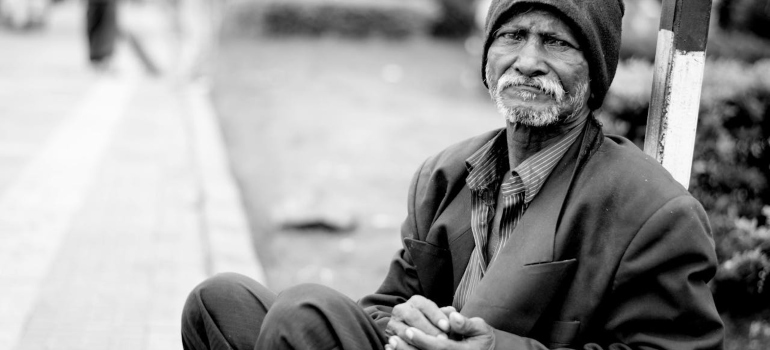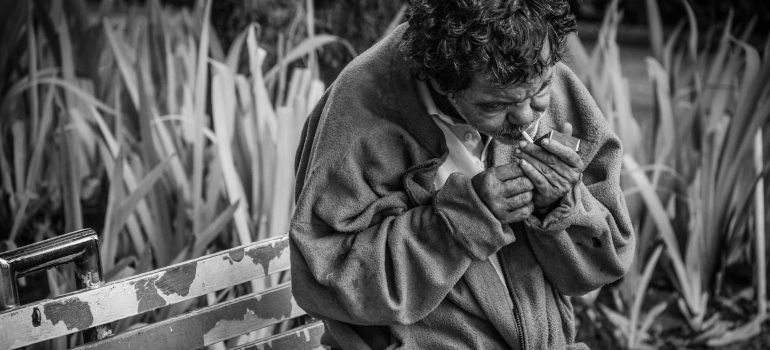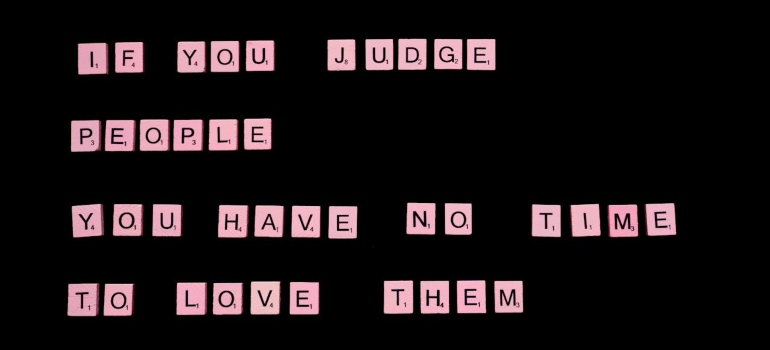Understanding why people stop going to rehab in West Virginia is essential when we are discussing the state’s ongoing addiction crisis. Despite the dedicated efforts of addiction treatment centers in West Virginia, many people face significant challenges. They prevent them from completing their rehabilitation programs. There are factors such as access barriers, the stigma surrounding addiction, limited treatment options, and financial issues. All contribute to this bad trend. Here, we will discuss various reasons behind this burning issue, exploring individuals’ complex challenges and thinking about solutions to increase the number of people staying in rehab and support long-term recovery.
Why People Stop Going to Rehab in West Virginia Explained
The shortage of rehab facilities and treatment programs is a burning issue in West Virginia, especially in rural areas. Many parts of WV lack the necessary infrastructure to support individuals seeking addiction treatment. This lack of resources means that people often face long waiting lists and limited availability of specialized care, such as individual therapy for addiction. That’s where Harmony Ridge Recovery Center can help and ensure the availability of the people who need addiction treatment in WV.

Exploring How to Access Barriers and People Stop Going to Rehab in West Virginia
One of the main reasons people stop going to rehab in West Virginia is because it is difficult for them to access barriers. The state’s rural geography presents a great obstacle in transportation and proximity to treatment facilities. Many individuals struggling with addiction live in remote areas. Those areas are often far from the nearest addiction treatment center, thus making it difficult to attend regular meetings. Additionally, the lack of affordable treatment options makes things worse, as many people cannot afford the cost of rehab. However, some programs, such as the partial hospitalization program West Virginia, can be a beneficial alternative. Partial hospitalization programs represent essential steps in overcoming these barriers. By making these programs more accessible, we can help ensure that people in rural areas have a better chance of achieving long-term recovery.
Stigma Surrounding Addiction Treatment As the Main Reason Why People Stop Going to Rehab in West Virginia
Another major factor that discourages people from seeking or continuing addiction treatment in West Virginia is the stigma surrounding it. Negative perceptions of rehab and addiction often lead people to feel shame and embarrassment. That shame and embarrassment is making people reluctant to seek help. This stigma is deeply rooted in many communities. In them, addiction is observed as a moral failing rather than a medical condition that is almost impossible to control. Inpatient drug rehab centers in West Virginia can offer comprehensive care for individuals struggling with addiction. Because the fear of judgment may prevent individuals from accessing these services, it is crucial to destigmatize addiction and promote a supportive community environment. That is why the most important and effective method is educating the public. Public education campaigns and community outreach programs are important in changing these negative perceptions.
Lack of Insurance Coverage
Lack of insurance coverage is another important factor that impacts rehab attendance in West Virginia. Many people in the state lack sufficient insurance coverage for addiction treatment, which results in debts. Without appropriate financial support, individuals seeking support may be unable to afford the comprehensive care needed for effective recovery. This issue is especially challenging for specific groups, such as veterans, who, unfortunately, often require specialized care. In Harmony Ridge Recovery Center, we offer rehab for veterans, which addresses specific challenges like PTSD and combat-related stress. Handling this issue requires significant policy changes to improve insurance coverage for addiction treatment. Besides improving, it also aims to reduce the financial burden on patients. Ensuring that insurance plans cover a wide range of treatment options, including medication-assisted treatment, can help more individuals access the care they need. Additionally, advocating for expanded coverage for veterans can make a substantial difference.

Co-Occurring Mental Health Disorders
Co-occurring mental health disorders are common among individuals with addiction issues in West Virginia. Those co-occurring conditions are complicating the treatment process. Conditions such as anxiety, depression, and PTSD are often mixed with substance abuse. Thus, they are creating a challenging and vicious cycle to break. All-encompassing treatment approaches that tackle both addiction and mental health disorders are crucial for successful recovery. That is why we need treatment centers that offer the following:
- Simultaneous Treatment: Navigating both addiction and mental health issues prevents one condition from making the other worse
- Specialized Care: Customized interventions for handling multiple disorders ensure that individuals receive the specific support they need.
- Holistic Approach: Combining medication, therapy, and support groups creates a more efficient treatment plan.
Increasing the availability of integrated treatment programs and training staff to manage co-occurring disorders can significantly improve retention rates and support long-term recovery.
Environmental and Social Factors
Social and environmental factors play an extremely important role in addiction and treatment dropout rates in West Virginia. Unemployment, poverty, and lack of social support are common issues that contribute to the ongoing addiction crisis. People struggling with these challenges often find it hard to commit to a rehab program or maintain sobriety after leaving treatment. The daily stress, unstable economic status, joblessness, and inadequate support networks can make addiction worse. In that way, all that is making recovery even more challenging. Addressing these social and environmental issues is crucial for improving treatment outcomes and reducing dropout rates in West Virginia. This includes economic support, community programs, and social services. By addressing these underlying issues, we can create a more supportive and stable environment that encourages people to stay in rehab and maintain long-term sobriety.

Barriers to Medication-Assisted Treatment (MAT)
Medication-assisted treatment (MAT) is a proven method for treating opioid addiction. However, many individuals in West Virginia cannot access this form of treatment. Still, many people, including some within the medical community, dislike MAT. It is because they mistakenly view it as substituting one addiction for another. Another critical barrier is the lack of provider availability, especially in rural areas with limited healthcare resources. Many individuals cannot easily access qualified healthcare professionals to manage and prescribe MAT; this is where Harmony Ridge Recovery Center can help. Medication-assisted treatment (MAT) is a proven approach at Harmony Ridge to support individuals in their journey toward recovery from substance use disorders. Besides difficulty accessing MAT, regulatory restrictions further complicate access to it. These regulations can limit the number of patients a provider can treat with MAT or impose outrageous requirements on providers and patients.

Community Support Networks and Resources
Support networks are vital for individuals struggling with addiction. Recovery communities, peer support groups, and harm reduction services provide essential support and encouragement for those on their path to recovery. These resources help people stay connected, build healthy relationships, and maintain sobriety. Peer support groups offer a sense of belonging and understanding, allowing individuals to share personal experiences and strategies for staying clean. Recovery communities create a safe space so that people in the recovery process can engage in sober activities and develop a strong, stable network. Harm reduction services, such as needle exchange programs and safe use education, are here to minimize the risks associated with promoting safer practices. In addition to these community resources, family therapy for addiction is crucial in supporting long-term recovery. It helps tackle and improve family dynamics that may contribute to substance abuse, cultivating a healthier home environment.
Relapse and Recurrence of Addiction
Common challenges that individuals face after leaving rehab are relapse and recurrence of addiction. The transition from a structured treatment environment back to the chaos of everyday life can be overwhelming and filled with triggers. Without constant support and aftercare, the risk of relapse is extremely high. Addiction treatment centers in West Virginia, such as Harmony Ridge Recovery Center, always emphasize the importance of aftercare services. Aftercare services include support groups, and continued therapy. These services provide stable support and help people manage the challenges of maintaining sobriety in the real world. Also, incorporating holistic approaches like mindfulness practices and stress management techniques can empower individuals in their recovery journey. Rehab centers must recognize that recovery is a lifelong process that demands support beyond the initial treatment phase.

Financial Barriers to Treatment
Money issues are a very important reason why people stop going to rehab in West Virginia. Many people lack the financial resources needed to afford all-encompassing addiction treatment. The high cost of rehab programs can lead individuals to skip or discontinue treatment. In addition, the limited availability of insurance coverage for addiction treatment that we mentioned further exacerbates this issue. Expanding access to affordable treatment options and increasing funding for addiction services in West Virginia is crucial to addressing these financial barriers. This includes advocating for policy changes that improve insurance coverage for addiction treatment and reduce high costs. Furthermore, financial assistance can greatly relieve the burden on those struggling to afford treatment.
Understanding Dropout Trends in West Virginia Rehab
Even though we know why people in West Virginia keep dropping out of rehab, we must also understand those reasons. Exploring the factors and reasons behind why individuals discontinue their rehab programs in West Virginia is essential for addressing the state’s addiction crisis accordingly. Despite the availability of rehab centers and affordable treatment options, such as those offered by Harmony Ridge Recovery Center, many individuals face significant barriers. Those barriers hinder their ability to complete their rehabilitation process. Factors such as cultural attitudes towards addiction, lack of insurance coverage, and limited treatment options all contribute to this troubling trend. In addition, the recurrence of addiction and the lack of adequate aftercare support further compound the issue. We can identify gaps in the current treatment system by delving into these dropout trends. Also, we can develop targeted interventions to support people’s recovery efforts better.

Managing Addiction Dropout Rates and Not Being Judgemental
To learn and provide adequate support, we need to learn and be able to tolerate people almost unconditionally. There are obstacles such as access barriers, cultural attitudes, limited treatment options, financial constraints, and the prevalence of co-occurring mental health disorders. All of them contribute to high dropout rates and relapse. Addiction treatment centers in West Virginia must adopt detailed and comprehensive approaches that address these various issues adequately. By improving access to care, providing continuous support, and cultivating supportive environments, we can help more individuals achieve long-term recovery and reduce the number of people who stop going to rehab.
Reference:
https://www.ncbi.nlm.nih.gov/pmc/articles/PMC4924064/https://www.pexels.com/photo/depth-photography-of-blue-and-white-medication-pill-360622/



